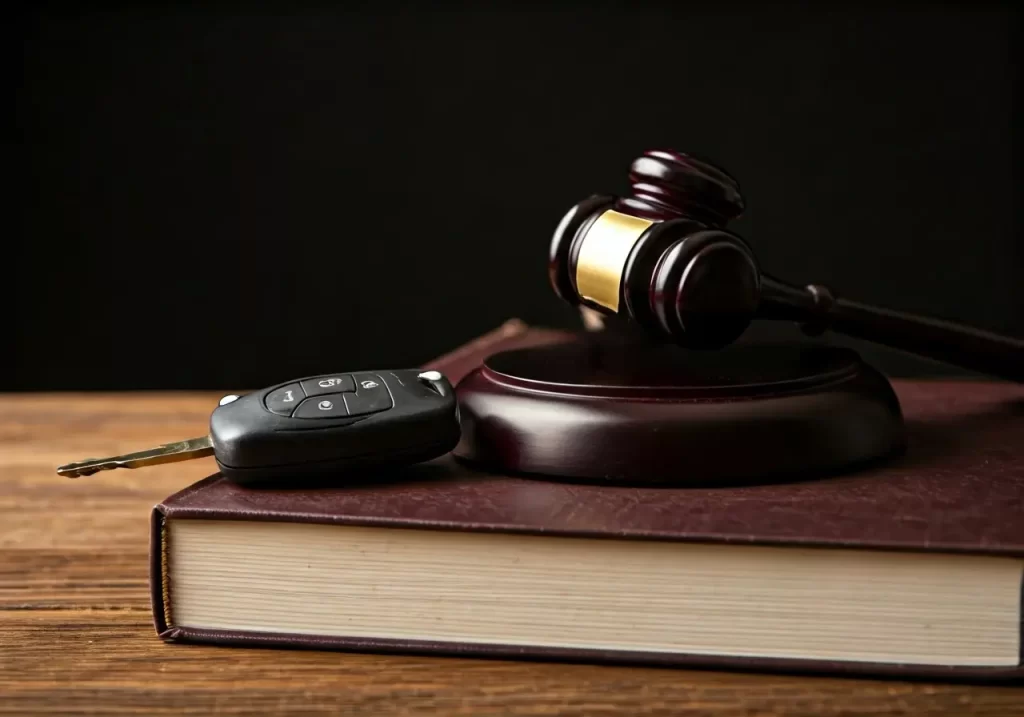Facing a DWI arrest in New Jersey can be overwhelming and confusing. Understanding your rights and the legal process can help you navigate this challenging situation. Here’s a simple, straightforward guide to help you understand NJ DWI laws and what steps you need to take after an arrest.
Understanding NJ DWI Laws
NJ DWI laws are strict and carry severe penalties. It’s important to understand what constitutes a DWI, the legal blood alcohol concentration (BAC) limits, and the potential consequences of a conviction. The legal limit for BAC in New Jersey is 0.08%, but it’s crucial to note that even if your BAC is below this threshold, you can still be charged if your driving is deemed impaired understanding this distinction is crucial for anyone navigating New Jersey’s roads.
A common misconception is that you must be over the legal BAC limit to be charged with a DWI. However, if an officer believes your ability to drive is impaired by alcohol or drugs, you can still face charges. This means even a BAC of 0.05% coupled with signs of impairment can lead to a conviction. For a better understanding, consider reading more about what DWI laws in NJ entail.
In New Jersey, refusing to take a breath test carries its own set of serious penalties which are similar to those of a DWI conviction. As a driver in New Jersey, you have implicitly agreed to submit to a breath test if requested by an officer. Refusing to comply can complicate your case and may result in additional charges and penalties. Moreover, understanding your rights and obligations during an arrest can significantly impact the outcome of your case.
Know Your Rights When Arrested
Knowing your rights during a DWI arrest can protect you. Always remember to remain silent and request an attorney. Avoid incriminating yourself by making unnecessary statements. The officer must inform you that you have the right to remain silent and the right to an attorney. These rights are fundamental to ensuring you don’t provide any potentially damaging information unwittingly.
If you struggle with English or did not understand the requests made by the officer, this could be used as a defense. New Jersey law mandates that individuals must be informed about their obligations in a language they understand. If you were not given an interpreter or materials in your language, you could build a defense around this aspect. It’s pivotal to inform the authorities about your language needs, as this rights are protected under New Jersey Supreme Court ruling.
Steps to Take Immediately After a DWI Arrest
After being arrested, it’s crucial to comply with law enforcement while being clear about your rights. Gather and document all details of the arrest as they will be critical when building your defense. This means noting down the events leading up to the arrest, any conversations you’ve had with the officers, and the procedures they followed.
Contact a skilled DWI attorney immediately after your arrest. They can guide you through the process, inform you of your rights, and provide the best possible defense. A timely consultation with an attorney can significantly affect the outcome of your case, as they can help you avoid early missteps that might complicate your situation later.
Hiring a Qualified DWI Attorney
A skilled DWI attorney can make a significant difference in your case. They can help you understand the charges, advise you on the best course of action, and represent you in court. An experienced attorney knows the intricacies of NJ DWI laws and can identify weaknesses in the prosecution’s case or errors in police procedures, potentially reducing your charges or even getting your case dismissed.
Hiring a qualified DWI attorney allows you to have an expert advocate on your side who can navigate the legal landscape effectively. Testimonials from clients can shed light on the success rate and trustworthiness of the attorney, providing you with confidence in your choice of legal representation.
Preparing for Your Court Appearance
Preparation is key to a successful court appearance. Understand the charges against you, gather all necessary documents, and practice what to say during your hearing. Your attorney will help you prepare your statement and any defense strategies, ensuring you are ready to present your case confidently.
It’s important to dress appropriately and respect court protocols. Showing the judge that you take your case seriously can positively influence their perception of you. Being respectful, calm, and articulate during your appearance can also work in your favor.
Possible Defenses Against DWI Charges
There are several defenses that can be employed against DWI charges, such as questioning the accuracy of BAC tests or arguing procedural errors during the arrest. Your attorney can help identify the best defense strategy for your case. For instance, if the arresting officer did not follow proper protocol, evidence gathered during the arrest could be deemed inadmissible in court.
Another possible defense is challenging the reliability of the breathalyzer or field sobriety tests. Mechanical issues, incorrect administration, or even your health conditions can affect the results of these tests. Ensuring these potential errors are examined can strengthen your defense.
Understanding the Consequences of a DWI Conviction
A DWI conviction can lead to severe consequences, including fines, license suspension, and even jail time. It’s important to be aware of these potential outcomes and prepare accordingly. Additionally, insurance rates may increase, and a conviction can impact your employment opportunities and personal life.
For third-time offenders, there is a possibility that part of the mandatory jail term could be substituted with time in a rehabilitation facility. This can offer an opportunity for recovery and demonstrate a commitment to change, which might be looked upon favorably by the court.
Taking Steps Towards Rehabilitation
If you’ve been convicted, taking steps towards rehabilitation can demonstrate a commitment to change. This can include attending DWI education programs, undergoing alcohol counseling, and community service. Such efforts can aid in your personal recovery and potentially reduce your penalties.
Participating in community service or joining support groups can also show the court that you are serious about making positive changes. These actions not only help in legal proceedings but also foster personal growth and recovery.
Wrapping Up: Your Path Forward
Navigating NJ DWI laws after an arrest can be daunting, but understanding your rights and the steps to take can make the process more manageable. Always seek professional legal advice to ensure the best possible outcome. Stay informed and proactive in handling your case.


